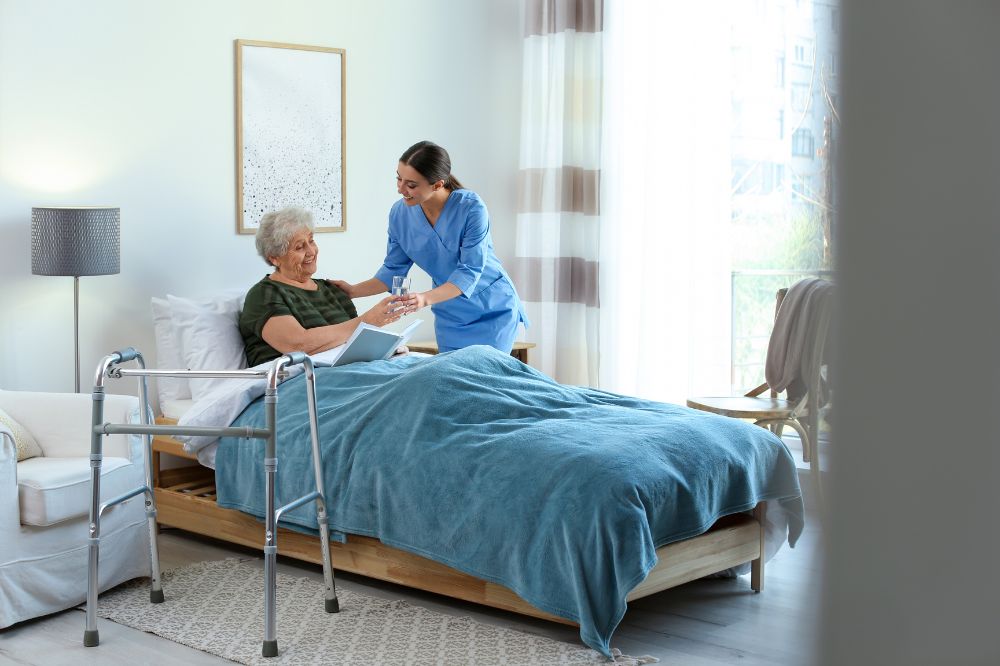When it comes to caring for an elderly or disabled loved one, many families face a big question: Is private pay home care cheaper than nursing homes? This is an important question because choosing the right type of care can affect both the quality of life for your family member and your financial situation. In this guide, we’ll explore the costs and benefits of private pay home care compared to nursing homes. We’ll also help you understand what private pay home care means, especially if you are searching for reliable and high-quality care in Springfield, MO.
What Is Private Pay Home Care?
Private pay home care means paying out of pocket for someone to help your loved one live safely and comfortably at home. Unlike services covered by insurance or government programs, this care is paid directly by you or your family. Private pay home care can include many types of help:
- Assistance with daily tasks like bathing, dressing, and eating
- Medication reminders
- Light housekeeping and meal preparation
- Companionship and social interaction
- Transportation to appointments
Because the care happens at home, it feels familiar and less stressful for many seniors. The caregivers can focus on one person at a time, offering personalized attention that nursing homes sometimes struggle to provide.
How Much Does Private Pay Home Care Cost?
The cost of private pay home care varies depending on how many hours of care your loved one needs, the type of help required, and the care provider’s rates in Springfield. On average, families can expect to pay around $20 to $30 per hour for home care services. If your loved one needs full-time care, say 8 hours a day, the costs can add up to $4,800 to $7,200 per month. But if only part-time help is needed, the monthly cost is much less. One advantage is that you only pay for the care hours you use. This means you can adjust the level of care as needs change without paying for unused services.
What Are Nursing Homes?
Nursing homes are facilities where seniors or people with disabilities live and receive medical care 24/7. These homes provide:
- Medical supervision and nursing care
- Meals and personal care
- Social activities and rehabilitation services
Nursing homes are designed for people who need constant care and can no longer live safely at home. They have professional staff and medical equipment on hand to help residents.
How Much Do Nursing Homes Cost?
Nursing home care tends to be more expensive than private pay home care. The average cost for a nursing home in Springfield, MO, can range from $6,000 to $8,000 per month for a shared room. Private rooms cost even more. These costs usually include housing, meals, nursing care, and daily living assistance. Because nursing homes provide round-the-clock supervision, their fees are higher to cover staffing and facility expenses.
Comparing Costs: Private Pay Home Care vs. Nursing Homes
When comparing costs, it might seem like private pay home care is cheaper. But it depends on the level of care your loved one needs.
- If your loved one only needs part-time help or assistance with certain tasks>, private pay home care can be more affordable. You can pay only for the hours needed and avoid the full cost of living in a nursing home.
- If your loved one requires 24-hour supervision and medical care,> nursing homes might be the safer and more practical choice, even if the cost is higher.
Another thing to consider is that private pay home care allows your loved one to stay in the comfort of their own home, which many seniors prefer. This can improve their happiness and well-being.
Benefits of Private Pay Home Care
Choosing private pay home care offers many benefits beyond just cost savings:
- Personalized Care: Caregivers focus on one person at a time, creating a custom care plan.
- Comfort: Your loved one stays in their own home, surrounded by familiar things.
- Flexibility: You can adjust care hours as needed.
- Independence: Seniors often feel more independent and dignified.
- Family Involvement: Families can stay more involved in daily care and decisions.
When Might Nursing Homes Be Necessary?
There are times when nursing homes are the best or only option:
- When your loved one needs constant medical attention
- If they have severe memory problems or dementia that require special care
- When home care is not enough to keep them safe
- If family members are unable to provide or manage care
In these cases, the cost might be higher, but nursing homes provide specialized care that is hard to replicate at home.
Making the Right Choice in Springfield, MO
If you’re in Springfield, MO, deciding between private pay home care and a nursing home, start by asking: What level of care does your loved one need, and for how long? What’s your budget, and how important is staying at home? Do you have family who can help with care? A trusted home health care provider can guide you through these questions and help create a care plan that fits your needs and budget.
Conclusion
Private pay home care is often more affordable than a nursing home, especially for part-time support with daily tasks. It also offers comfort, flexibility, and one-on-one care that can boost quality of life. Nursing homes, on the other hand, are better suited for seniors who need 24/7 medical care and supervision. If you’re in Springfield, MO, and exploring care options, connect with local experts who understand your needs. For trusted and compassionate home care, reach out to Haven Home Health and Hospice—they’re dedicated to keeping your loved one safe and cared for at home.




